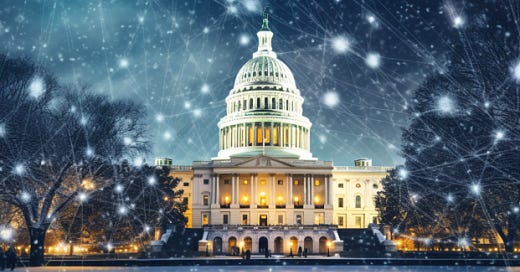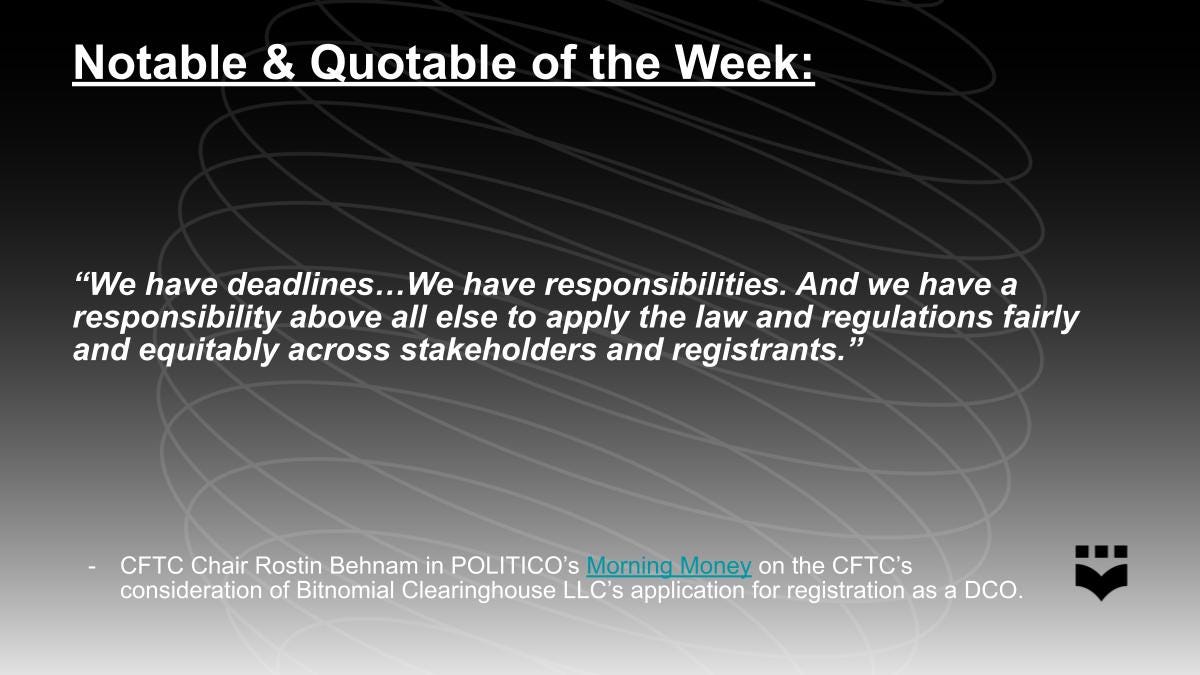The Terrorism Financing Prevention Act; The Deploying American Blockchains Act
The Terrorism Financing Prevention Act
What happened?
Last week, U.S. Senators Mitt Romney (R-UT), Mark R. Warner (D-VA), Mike Rounds (R-SD), and Jack Reed (D-RI) introduced the Terrorism Financing Prevention Act.
The act would require the U.S. Department of the Treasury to identify any foreign financial institution or “foreign digital asset transaction facilitator” that knowingly supports transactions with a foreign terrorist organization (FTO) or any FTO-related party. Once these actors are identified, the bill would direct the President to impose sanctions on those foreign financial institutions and facilitators.
In addition, the bill would amend section 311 of the PATRIOT Act, an idea that we’ve commented on before. This provision would add a new “special measure” that grants the Treasury the power to restrict U.S. financial institutions’ “transmittals of funds” involving activities it deems to be of “primary money laundering concern.”.
What does it mean?
Congress’s commitment to addressing AML/CFT concerns grows by the day, and this bill’s introduction evidences the fact that members have been consistently developing new ways they think will accomplish that objective. The senators on this bill have co-sponsored several others on the same topic. In our view, any regulatory package that has a chance of becoming law will have to be paired with AML/CFT legislation. That said, this bill’s sweeping delegation of broad authorities that could easily be interpreted to effectively impose secondary sanctions on any non-U.S. person involved in the crypto sector—effectively banning U.S. persons from even touching a crypto network—should be reconsidered.
The Deploying American Blockchains Act
What happened?
Last week, the House Committee on Energy and Commerce unanimously passed the Deploying American Blockchains Act to direct the Secretary of Commerce “to take actions necessary and appropriate to promote the competitiveness of the United States related to the deployment, use, application, and competitiveness of blockchain technology or other distributed ledger technology, and for other purposes.”
The new legislation was sponsored by Representative Larry Bucshon (R-IN), and was part of 44 pieces of legislation designed as “solutions that further improve people’s lives and secure America’s global competitive edge,” according to the Committee.
In its provisions, the bill calls for establishing best practices standards and supporting both private and public sectors in promoting the integration and understanding of blockchain technology, ensuring its secure, innovative, and efficient use across various industries and government agencies. It also calls for establishing a seven year Blockchain Deployment Program, to promote the U.S. leadership on a global scale.
What does this mean?
The unanimous vote signals bipartisan support for blockchain technology and its applications. It also recognizes the urgency in strengthening U.S. competitiveness on the global scale, which Congress has been less focused on in other proposals. The bill itself embodies a keen understanding that digital assets and blockchain technology require input and support from a variety of actors in both the public and private sectors and explicitly promotes innovation.



